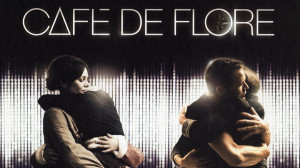By Kayla Arbini
Staff Writer
The exploration of human interconnectedness in cinema is not a novel concept. It is frequently purported that the theme of integral human relationships can be found in almost every genre of film from the outlandish science fiction to even the radical dark fantasy. After all, it is not too often that a film manages to capture the essence of such congruence with a lens of realism that transcends the complexities of such a familiar concept, making it as effortlessly simple as the concept lends itself to be. French-Canadian director Jean-Marc Vallee governs the notion of love and its timeless interrelation in his film Cafe de Flore (2011) with an artistic reverence simultaneously sensual and melancholic.
The movie introduced two seemingly extraneous stories that are built in respective isolation. In present-day Montreal, Antoine Godin (Kevin Parent) lives comfortably, enthralled with life, for his happiness is obvious and exuding. He has a ravishing girlfriend named Rose (Evelyne Brochu), two daughters, living parents and a successful career as an international DJ. In retrospect, his life is perfect. As he and Rose become further and further transfixed with one another, Antoine must weather the hurdles of his previous relationship without damaging the familiar thread tied to his ex-wife and children.
Vallee also snapshots the life of a devoted single mother named Jacqueline (Vanessa Paradis) to her son Laurent (Marin Gerrier) with Down’s syndrome nearly four decades past in Paris, France. Superficially her life constitutes of financial and emotional downfalls but her dedication to her son provides her with a most rewarding relationship, and Laurent is like Antoine, undeniably happy. It is not until he encounters a young girl at school named Veronique who also has Down’s syndrome that the very fabric of their relationship is reconstructed, Jacqueline succumbing to the pitfalls of jealousy and Laurent not understanding quite why.
Narratives are paralleled using clever cinematic slights-of-hand, cutting sound and image to redirect attention in an atmospheric manner that allows the movie to be read as wistfully dream-like. The success of Cafe de Flore is hidden in the film’s intimate relationship with its soundtrack. No doubt the addition of Pink Floyd’s “Time” as the replacement for an orchestrated score enhances the ethereal feeling of watching two separate timelines coexist in the aftermath of love and love lost.
The narratives combine and attempt to build a bridge of cohesion, but the blend requires a stretch of the imagination. The concept is at best artistically abstract and can be viewed alternatively as a justification for infidelity. The latter assertion loses validity, however, when one attempts to assign it to the film holistically. In exploring the universality of human love, the connectedness of the soul, Cafe de Flore manages to dismantle the confines surrounding the concept with philosophical license. Metaphysical in nature, possibly yes, but every whimsicality is underlined with touching displays of unconditional love. However in being metaphysical, it may require a second viewing. Luckily for you, it is on Netflix. Watch it incessantly if you need to but probably because you want to see it for yourself.
Rating: Four paws out of five


